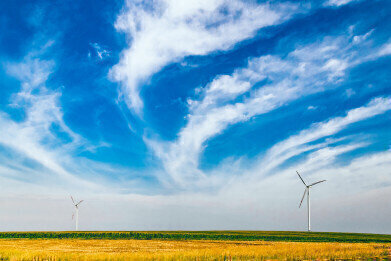Business News
Why is Investment in Low-Carbon Energy in Europe at its Lowest Level for a Decade?
Apr 28 2016
The latest figures analysing European investment in green energy show that it has fallen to its lowest level for 10 years. According to data released by Bloomberg New Energy Finance (BNEF), just £40bn was spent on the renewable energy sector in 2015. Contrast that with the peak investment figures reached in 2011 - £92bn – and it’s clear that European green energy is in sharp decline.
Due to a fall in governmental subsidies, uncertainty over the stability of marketplaces and a general waning in enthusiasm for renewable technology, Europe has fallen off its perch as the world leader in the sector. In fact, last year it only constituted a mere 18% of the global market, down from 45% in 2010.
A Variety of Factors
In part, the fall of the European renewable market can be attributed to the global financial crisis, which has affected Europe severely in some parts. The instability that the crash created has discouraged investors from placing their capital in uncertain European projects – though this is by no means the only reason.
Another major factor is governmental policy across Europe. While many governments (including the British government) invested heavily in green technology at the outset, pouring significant amounts of public funds into subsidies, they have since grown wary of the expense involved in sustaining such investment and have rolled back spending in those areas.
Meanwhile, the Conservatives in particular have continued to back fossil fuels and fracking, whilst cutting solar thermal investment and other methods of clean energy production. Chairman of the BNEF Michael Liebreich has been particularly outspoken of such decisions.
“The tragedy is that Europe lost its renewable energy mojo just as costs were plummeting to the point where green power is fully competitive without subsidies in more and more parts of the world,” explained Liebreich. “[Politicians and opponents of wind] have failed to grasp that one of the reasons why costs are higher in the UK is because of the policy uncertainty they helped to create.”
Meanwhile, the most recent report on the bloc was subject to widespread criticism for focusing on the challenges and opportunities of setting up a European green gas market, rather than the renewable sector.
China Thrives While Europe Flounders
On the other side of the world, China has capitalised upon previous EU investment to enter something of a new era in air quality monitoring and green energy production, having invested almost two and a half times the amount that Europe did in clean technology last year.
Chinese firm Goldwind became the global leader in manufacturing wind turbines, and the strides they have made in catching up to and overtaking Europe in recent years are nothing short of astonishing.
“Twenty years ago, Europeans were still teaching China how to draft environmental laws,” explained the chief of E3G, Nick Mabey. “Ten years ago, Europe saw China just as a market for its green exports. Today, China is on the verge of dominating the global clean energy economy. The EU must act decisively to stay in the race.”
Digital Edition
AET 28.2 April/May 2024
May 2024
Business News - Teledyne Marine expands with the acquisition of Valeport - Signal partners with gas analysis experts in Korea Air Monitoring - Continuous Fine Particulate Emission Monitor...
View all digital editions
Events
Jul 30 2024 Jakarta, Indonesia
China Energy Summit & Exhibition
Jul 31 2024 Beijing, China
2024 Beijing International Coal & Mining Exhibition
Aug 07 2024 Beijing, China
IWA World Water Congress & Exhibition
Aug 11 2024 Toronto, Canada
Aug 25 2024 Stockholm, Sweden and online










.jpg)








